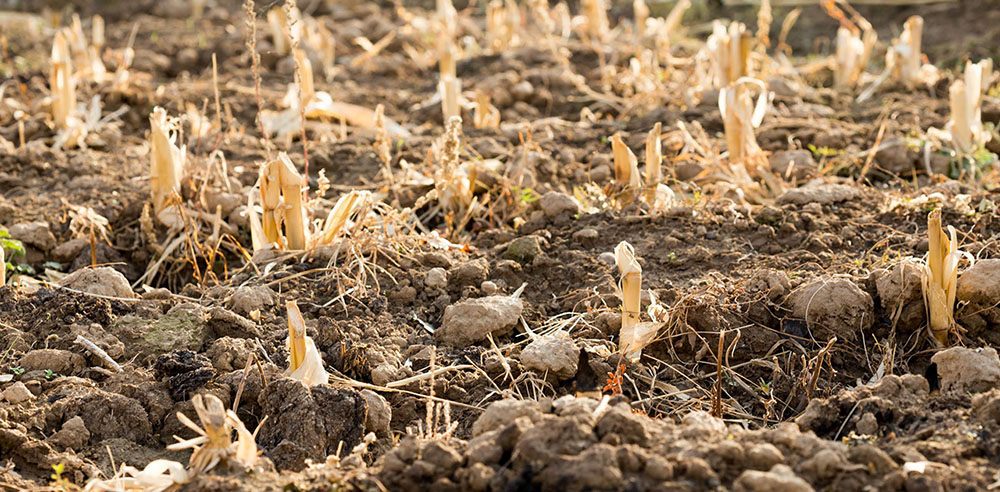
Also, according to Sass, no-till allows the soil to absorb much more water and handle heavy rain, which keeps soil on the field and out of the watershed. He continues, “No-till will save you time and money. You’ll spend less time on your tractor. You’ll use less fuel. You’ll have less wear and tear on your equipment. No-till is a win-win for your soil and for your pocketbook.”
Which is not to say that there is nothing you can do in the fall to help prepare your soil for spring planting and fortify the microbiome. Our Fertil Humus® product, when applied in the fall, can help degrade any crop residue or crop field trash that’s left behind and convert it to humus over the winter. It also stimulates microbial activity, especially mycorrhizal fungi that have a symbiotic relationship with plant roots. These fungi play a key role in freeing nutrients that are tied up in soil organic matter.
Fertil Humus® will buffer the toxicities of left-over pesticides, breaking their hydrocarbon chains to render them ineffective. It will also decrease phosphorus toxicity (e.g., from over-applied chicken manure) that can lead to zinc-manganese tie-up/deficiency. For fall after-harvest field application, we recommend Fertil Humus® at 1–2 quarts/acre (2.5–5.0 liters/hectare) as a broadcast spray or flood or furrow irrigated. This will set up your soil for spring planting with better tilth, microbial activity, and nutrient availability.
For more information on Fertil Humus® click here, or contact a Huma representative. For more about our Huma® plant & soil products, click here.
Related Posts

Intro to Huma Gro®: The Video
Watch a short (4:18) video introduction to the Huma Gro® product line of crop nutrition and crop protection products.

California Rescues Orchards, But Leaves Vineyards Holding the Vine
By Nick Cardona Feast or famine. There doesn’t seem to be any in-between for many California growers. For the past 6 years, northern and central California have been experiencing severe drought conditions. The drought had become so extreme that the government began regulating the water available to farmers and growers throughout the state. These regulations

Are you Growing Brilliance Strawberries? Planting Requirements and Nutritional Needs for Florida Strawberries
An interview with Jason Garcia, Huma Gro® Regional Manager and Agronomist By Jael Batty In August, Florida strawberry growers will begin laying plastic for the next season. Planting starts in September/October and harvest extends from December to early April. After the strawberry season, growers are double-cropping with watermelon, bean crops, or vegetable crops. In the following

